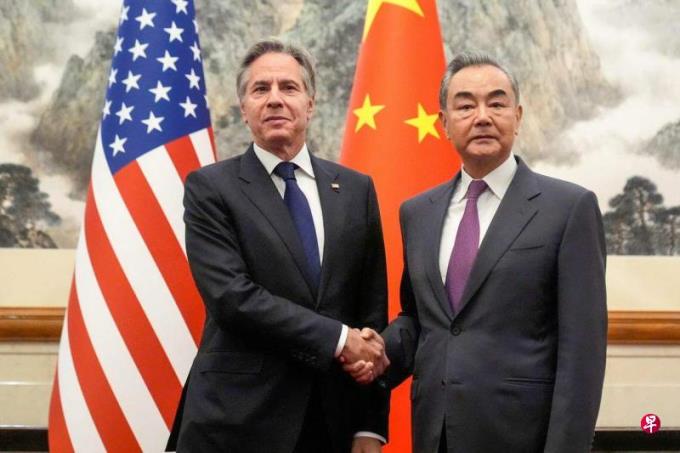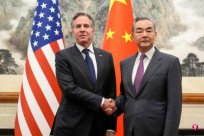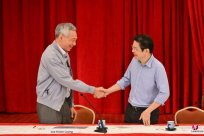
For Beijing, Washington's adjustment of the United States to China is the first.Therefore, among the five goals of Beijing's visit to China, the first goal is to "establish correct cognition."In other words, Beijing hopes that Washington will not regard China as the largest strategic competitor in the United States.
But this is exactly what Washington has a high consensus between the two parties in Washington in many domestic and foreign issues. It is not realistic to change the strategic positioning of China to China.This also reflects that the starting points of high -level seniors between China and the United States in handling the relationship between the two parties are not the same.
Beijing believes that the accurate positioning of the relationship between the two parties is the basis for carrying out and solving all other problems.Therefore, if Washington seeks cooperation with China on some issues, adjusting positioning of China is the primary problem.However, from the perspective of Washington, China is the largest strategic competitor in the United States, but it does not hinder Washington's possibility of reaching cooperation with Beijing on other issues.This is obviously a huge difference between the two sides in cognition.
As far as this is concerned, it is foreseeable that in the future, China and the United States will be in a state of stalemate in the future, and they are unlikely to make in principle concessions.Washington cannot change its position in China, and Beijing may also refuse to cooperate with the United States on some issues.This is not only a manifestation of a stalemate state between the two sides, but also a stable but subtle state of balance.
Can this state be broken, or under what circumstances can it be broken?
Washington's strategy for China has not been fully implemented, so it is difficult to make strategy invalid or failure in a short time, and from Washington's view, these strategies are quite effective.Therefore, Washington cannot adjust its strategy to China, and this stalemate will continue.
Specifically, in terms of strategic strategy to China, the decoupling, sanctions or curb strategy implemented in terms of economic, trade, technology, finance, and supply chain has continuedAnd to a certain extent success.Trump is like this, and the same is true of Biden, no matter who is elected as the president of the United States, it may still be the case.
For example, China has encountered the United States blockade in the high -tech field, especially high -end chips, and the United States has continued its movements.The United States not only requires its own companies to block chip technologies and products in China, but also require the same blockade policy to China, Japan, and South Korea in terms of chips.In addition, in terms of economic and trade relations, the friction and conflict between China, the United States, Europe and other developed countries have become more and more obvious, and there have been obstacles to varying degrees.Some of China's current difficulties may even be regarded as the basis of this strategic success.
In these areas, the United States itself is a vanguard and actively promotes the implementation of relevant policies.Because of these fundamental interests involving the United States' national strength and economic level, the United States is naturally quite positive.
In addition, in other fields, especially in the military security around China, the United States mainly relies on the way of alliances and groups to promote the curbing strategy for China.Challenge.For example, from the United States, Japan, and South Korea's three sides, to Australia and Britain, Britain and the United States, security partnerships, Indo -Pacific US Japan -India -Australian Sifang Security Dialogue, the economic framework of the Indo -Pacific region, and even the Indo -Pacific strategy of NATO, etc., the cooperation between the United States and strategic partners,It can be said that it is quite abundant.
Cooperation with these countries to create corresponding security organizations, and forming a cope with the alliance on different orientation points in China, so that China has faced multiple pressures in the surrounding hot issues, including Taiwan issues, South China Sea issues, etc.Essence
However, unlike the above -mentioned issues at the above -mentioned economic, trade and technological levels, compared with, the toughness of the United States has slowed in these aspects.Because in a sense, the issue of economic and trade and technological levels is related to the strength and economic development of the United States, while the military security level is not the most direct interest of interests.Only the United States is trying to maintain a leading advantage in the Asia -Pacific region, so it will actively intervene in these issues.This is the inevitable result of the United States on these issues to adopt strategic deterrence.
But for Beijing, these popular issues around them are precisely the core interests of China's attention. It is also an important fulcrum that China tries to weaken the leading advantages of the United States and break strategic deterrence.
Therefore, can China and the United States be broken in the current stalemate state?The possibility of breakthroughs in economic and trade technology is relatively weak, but there is a certain possibility on the popular issues around China.Only by changing these US tactical issues, the strategic adjustment can occur, and Sino -US relations can enter a new state.
(The author is a Beijing media)




